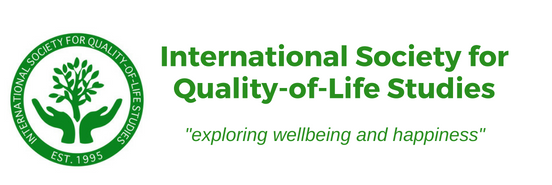|
Obituary Ruut Veenhoven (1942-2024) by Ad Bergsma
Ruut Veenhoven was one of the godfathers of the scientific study of happiness, a founding editor of the Journal of Happiness Studies and the driving force behind the World Database of Happiness.
Veenhoven was born during the Second World War in 1942 in The Hague in The Netherlands. During the sixties, he studied sociology and never stopped working on the liberation and emancipation of individuals. After formal retirement, he kept working in his room at the Erasmus Happiness Economics Research Organization. On the wall he kept a picture of his younger self, with the long hair and shaggy beard that was common for the counterculture of the sixties. Between 1970 and 1990 he was a leading advocate in promoting the acceptance of voluntary childlessness and abortion law reform in The Netherlands.
In his PhD study Veenhoven (1984) concentrated on the conditions of happiness. His life's work was the World Database of Happiness, in which he and a team of volunteers and coworkers brought together some 50,000 standardized descriptions of empirical findings on happiness as subjective appreciation of life. When his physicians told Veenhoven he lived in spare time, he asked me to mention in his obituary that some institution could still adopt the WDH. If not, his work was not in vain. Volunteers will finish the work on World Database of Happiness by entering another 1,500 studies. The WDH will be complete for studies published before 2021 and will remain publicly available.
The database provides empirical ground for Jeremy Bentham's moral theory that societies should aim for the 'greatest happiness for the greatest number'. Veenhoven’s underlying idea was that societies can raise happiness when we know in what circumstances it occurs. To paraphrase the American Declaration of Independence, Veenhoven facilitated the informed pursuit of happiness.
Scientifically, Veenhoven will be remembered for several, often quoted insights. The most consequential is perhaps that countries differ widely in average happiness of citizens and that it is possible to predict 80 percent of the variance. People are generally happy in countries in which basic human needs are fulfilled and that are characterized by:
- technically good governance that makes life predictable and facilitates informed choice of citizens
- economic growth
- gender equality
- security (freedom of crime and corruption),
- individual freedom
- investment in care (mental health care specifically), and
- modernity.
As Veenhoven himself recently remarked: ‘Prophets of doom associate modernization with increasing misery, but the data show a positive correlation with happiness. We now live longer and happier than ever before in human history and both longevity and happiness are still on the rise.’
Veenhoven did not escape a downside of a long life. He spent his last years in ill health but kept working and enjoying life. ‘The thought that my death is imminent, gives me peace of mind, much to my own surprise.’ One anecdote sums up what he was like. I once phoned in on him when he was stuck on a train platform, because the elevator was out of order and he no longer had the strength to climb the stairs. Veenhoven did not complain, but cheerfully described how much he appreciated public transport in The Netherlands and the excellent health care he received. As one of his PhD students and associate Jan Ott opined: ‘Ruut was able to be stoic in the face of setbacks, without sliding into indifference.’
Veenhoven also had an opportunistic streak. When he was diagnosed in 2019 with the disease that would end his life in 2024, he used this news to get some extra money to finish a paper on the effectiveness of happiness trainings. When I told him he surprised me, he would simply say that ‘you have to make hay when the sun shines’. Doing just happened to be his mission and one of his favorite pastimes.
Veenhoven was married to Kiki Dijkstra and was father of two daughters and a son. The days he could spend with his grandchildren were sacred to him. Veenhoven was a scientist with a vibrant enjoyment of life who never missed an opportunity to poke fun at himself and other dwellers of academia. We will miss him.
Dr. Ad Bergsma is a psychologist and science journalist. Ruut Veenhoven supervised his 2011 PhD dissertation ‘Imperfectly Happy’ and they continued cooperation until today, such as on the effects of happiness training.
|
